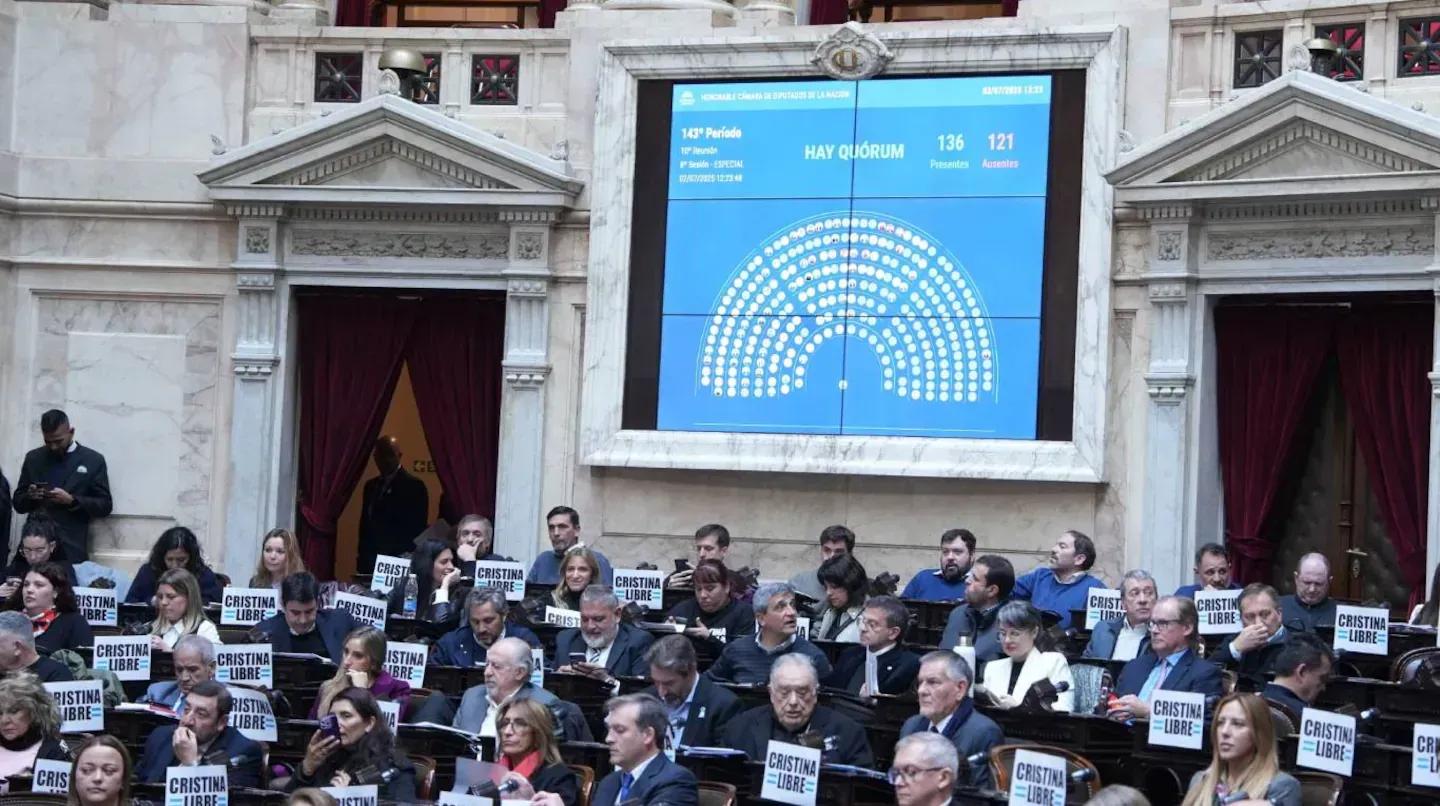The recent session in the Chamber of Deputies of the Argentine Nation has once again brought to the center of political debate the tension between the new government of Javier Milei and the opposition. This situation is not only a reflection of the ideological differences in Congress but also raises questions about the future of governability and public policies in a country facing deep economic and social challenges. What implications does this confrontation have for the development of key laws, especially in sensitive areas such as emergency disability?
🏛️ Current Outlook
In the last 24 hours, various news reports have highlighted the opposition's rejection of Milei's vetoes to the disability emergency law. This measure, which aimed to guarantee rights and resources to a vulnerable sector of the population, has generated a significant division among the deputies from Mendoza and, more broadly, across the country. The opposition has managed to consolidate a majority that blocks the implementation of certain policies proposed by the current government, creating a scenario of legislative gridlock that could further complicate the economic situation in Argentina.
The current context is critical. With inflation exceeding 100% annually and external debt limiting investment possibilities, the government's ability to implement effective reforms is compromised. Milei's veto policy, in this regard, could be seen as an attempt to consolidate his agenda, but also as a factor that exacerbates polarization and hinders the necessary dialogue to address structural problems.
🌍 International Comparison
The Argentine case is not unique. In other Latin American countries, we have seen how political polarization can affect legislative capacity. For example, in Venezuela, the confrontation between Nicolás Maduro's government and the opposition has led to legislative stagnation that has prevented the approval of fundamental laws, contributing to a humanitarian crisis of alarming proportions.
In contrast, countries like Chile have managed to make significant reforms despite political differences. There, dialogue and the pursuit of consensus have allowed the approval of laws that address social issues, such as education and public health. This type of approach could serve as a reference for Argentina, where the need for a social pact seems more urgent than ever.
⚖️ Implications of Legislative Gridlock
The decisions made in the Chamber of Deputies have direct repercussions on the daily lives of citizens. The rejection of the disability emergency law, for example, not only affects people with disabilities but also sends a message of disinterest towards vulnerable sectors of the population. This can translate into increased distrust of institutions and lower civic participation in democratic processes.
Moreover, legislative stagnation can have economic consequences. Without a clear and stable regulatory framework, private investment is affected. The lack of trust in the political system reduces the chances that national and foreign investors will commit to the country. History has shown that in crisis economies, investment translates into job creation and growth.
📜 Proposals to Move Forward
In light of this situation, it is necessary to explore alternatives that allow for the advancement of consensus building. One possible solution would be to establish dialogue tables between the government and the opposition, where priority reforms can be discussed constructively. This approach could not only facilitate the approval of laws but also contribute to restoring trust in the political system.
The implementation of public policies that prioritize social welfare, such as support for people with disabilities, should be a responsibility of all political sectors. Ignoring these demands can lead to increased social dissatisfaction, which has already begun to manifest in various forms of protest.
The experiences of other countries show that the path to economic and social recovery is not easy, but collaboration and dialogue are essential. Argentina cannot afford to continue in a spiral of legislative blockades.
🔍 Conclusion
The political and economic future of Argentina largely depends on the ability of its Chamber of Deputies to overcome polarization and find a path towards consensus. Recent sessions have demonstrated that the clash of powers can lead to harmful stagnation for the country. However, there is also an opportunity for political actors to reformulate their approach and prioritize the welfare of citizens.
While the situation is complex, dialogue and the building of agreements are fundamental. Argentina does not need more band-aids. It needs direction. History has taught us that without solid institutions and a politics that prioritizes the general interest, the path to sustainable development and social stability becomes uncertain.

Comments